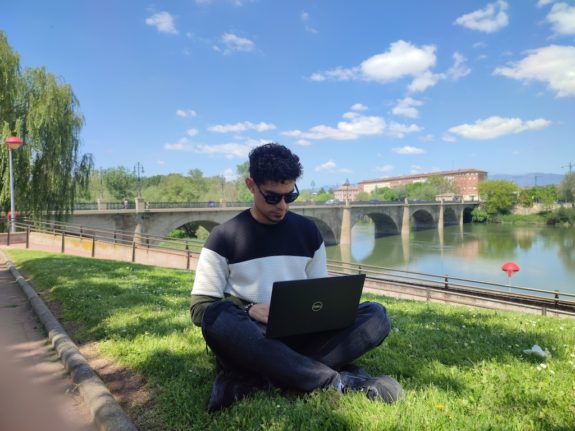Spain’s digital nomad visa, which launched in early 2023, is currently one of the easiest ways to move to Spain if you work remotely or are self-employed.
The digital nomad visa or DNV allows remote workers or self-employed people from non-EU countries to work and live in Spain, as long as no more than 20 percent of their work comes from Spain.
It can be extended for up to five years and can be applied for from the Spanish consulate in your home country or while on holiday in Spain.
Officially it’s called the visa for teletrabajadores de carácter internacional, but most people applying are simply referring to it as the DNV.
The application can be a painstaking process, however, with lots of research to do, even more documents to gather, and proof to send.
READ ALSO: All the documents you need for Spain’s digital nomad visa
So how long does the process actually take?
Firstly, if you’re applying from your home country, you may need to make an appointment at your local consulate. This can take a while, depending on where you’re from and where you’re applying. It’s best to contact them to find out how long the wait will be.
If you’ve gathered all your documents and sent them off, then the official time in which you can expect to receive a response from the body responsible – the Unidad de Grandes Empresas (UGE) is 20 business days.
Some people are lucky and get their applications approved quickly or they’re highly organised and have made sure there are no more documents or pieces of evidence to send. This means that it is possible to receive an approval within the 20 days.
One member of the Spanish Digital Nomad Visa Facebook group confirmed: “Application submitted June 21st. Approved just before midnight yesterday, July 18th for the full three years”, which is exactly 20 working days.
Another member also had a similar experience saying “Just received approval, family of 4 from Canada. Applied 26th July, approved on 23rd Aug – exactly 20 business days”.
READ ALSO: ‘It seems impossible’: The problems Spain’s digital nomad visa applicants face
Not everyone received an answer after exactly 20 days though. For some people, it was near enough though.
Another member said “The wait time for approval was 23 days, I was not asked for any further documents”, while another who was an employee with a permanent contract confirmed he waited 18 days.
The process can take longer
As with most bureaucratic processes in Spain, it doesn’t always take the amount of time that it should do in theory.
If you have missed out on some documents or the authorities need to see more proof in order to approve your visa, the process will typically take longer than 20 days.
One member reported that they had been waiting at least two and a half months for their approval. “I had a long process of applying (it’s been 77 days since my first one went in and then a second and then a request for additional documents) but finally received my approval”.
Another explained “I applied on the 6th of July. On the 31st of July, they requested documents: on the 14th of August, and did not hear back so I requested for positive silence on the 24th of August and last night 4th of September I received the notification”.
READ ALSO: ‘No lawyer can guarantee you get Spain’s digital nomad visa’
How long does the appeal process take?
It’s common for some people to be rejected for the visa. This could be because they haven’t provided enough evidence or simply down to miscommunication.
There have been a lot of instances when the UGE has said that applicants haven’t provided enough evidence on how long their company has been operating for example, when the applicants believed that they had.
If you are rejected, the good news is that you appeal. Currently, appeals are taking varying amounts of time depending on your situation.
One member of the DNV Facebook page confirmed “My lawyer said they have 15 working days to respond”.
While that may be what lawyers are saying, this isn’t always the case.
Another member said “I’ve heard of people waiting 5 months”, while another explained, “I appealed my visa denial last March 31st and I just got my approval yesterday, June 20th”.
To speed the process up, we recommend doing as much research as you can and gathering all documents you need, before starting the application.



 Please whitelist us to continue reading.
Please whitelist us to continue reading.
Member comments